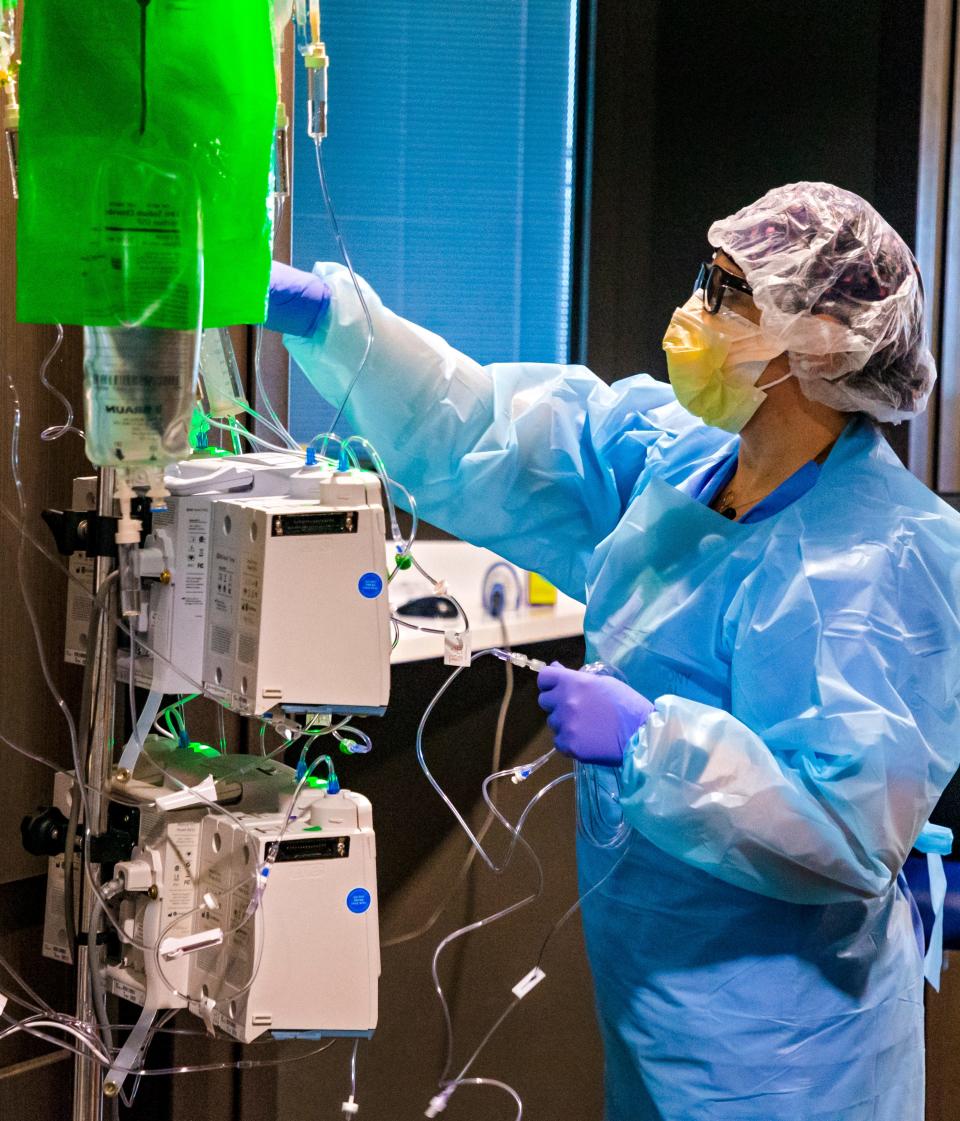‘Like a war zone:’ Oklahoma City hospitals are in crisis again as COVID-19 tears through state
Oklahoma City hospitals are in crisis again.
Hospital leaders on Tuesday described how the omicron variant of COVID-19 has pushed them to a breaking point: they're facing overflowing emergency rooms, shortages of supplies like syringes and saline, and scores of staff illnesses on top of an already depleted workforce.
“This time, it feels and sometimes even looks like a war zone,” said Dr. Julie Watson, the chief medical officer of Integris Health. “Cases have risen so rapidly, we have to care for patients in hallways, sometimes closets.”
Leaders of the four major health systems in Oklahoma City — Integris, Mercy, SSM Health and OU Health — pleaded for Oklahomans to do their part to ease the burden on health care workers by masking up, getting vaccinated and staying home when they’re sick.

The highly contagious omicron variant has led to an explosion of COVID-19 cases in Oklahoma, surpassing the peaks of any previous surge. Hospitalizations, which always lag behind cases, now nearly mirror levels seen during the height of the delta-variant surge in the summer of 2021.
More: 'A dire situation:' Oklahoma hospitals resume reporting capacity amid omicron wave of COVID-19
As of Monday morning, 117 patients were in Oklahoma City emergency departments waiting for beds to open up so they could be admitted. No intensive care unit beds or inpatient beds were open across the metro area, Watson said.
Some patients have had to wait 24 hours for an ICU bed to open up. Others have had surgeries canceled. And Oklahoma City hospitals have had to deny dozens of requests for patient transfers from smaller, rural hospitals, health leaders said.
More: At-home COVID test website launches early. How to order free testing kits from the government
“Those patients need us. They need our doctors, our clinicians, and they can't come,” Watson said. “We are telling you this because you need to know: this is not our choice. This is not what we want.”
In an open letter to Oklahomans released Monday night, the health leaders warned that the pandemic wasn’t only affecting COVID-19 patients’ care.
“Soon, you or a loved one may need us for life-saving care, whether for a stroke, emergency appendectomy or trauma from a car accident, and we might not be able to help,” they wrote in the letter.
The four major health systems in Oklahoma City — Integris, SSM Health, Mercy, OU Health — shared an open letter to Oklahomans last night about how the omicron wave is crushing them and asking for help.
"The Oklahoma City Health Care System is at a breaking point." pic.twitter.com/NyI7JcytE9— Dana Branham (@danabranham) January 18, 2022

 Yahoo Autos
Yahoo Autos 